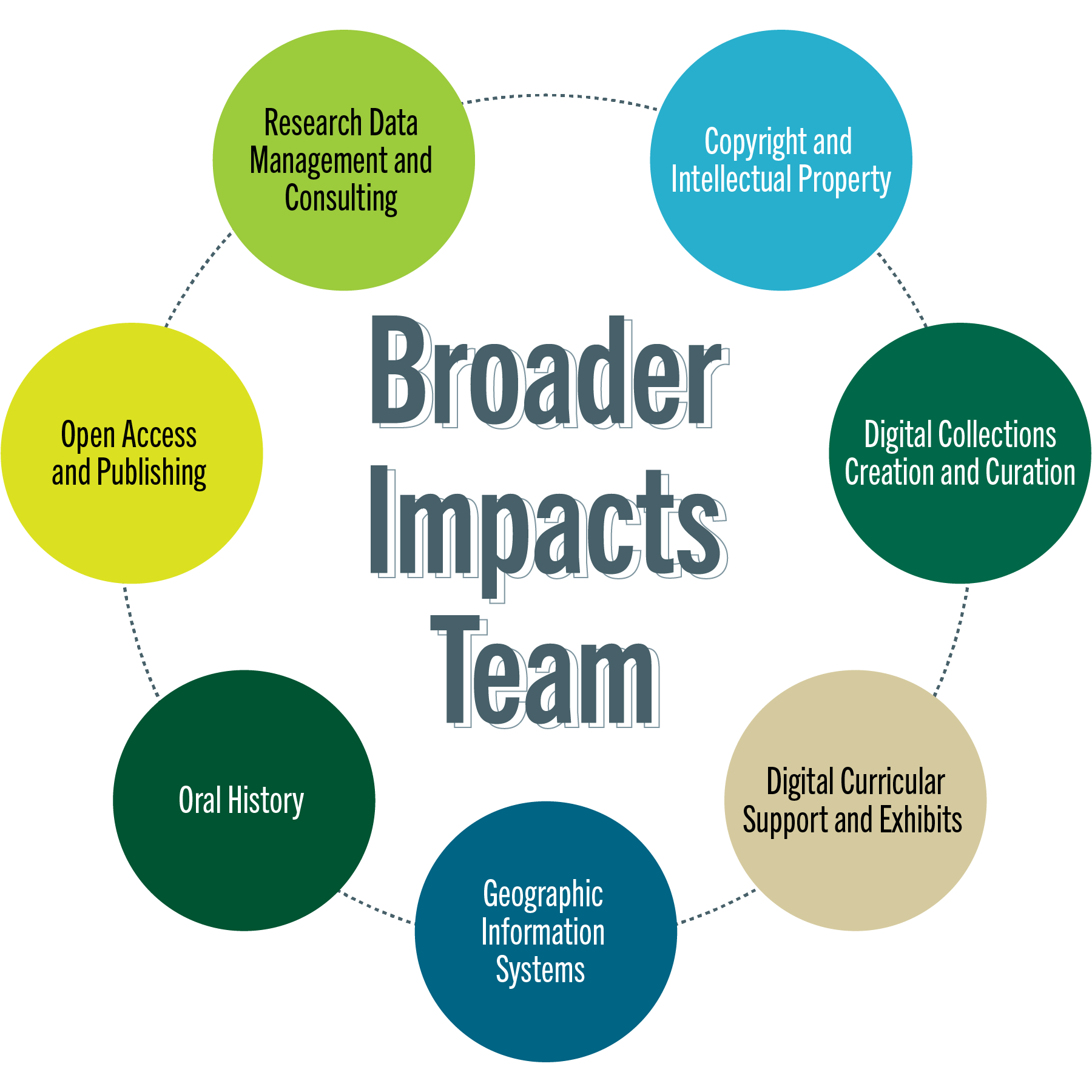USF Libraries Broader Impacts Team (BIT) collaborates with faculty and university research support units to improve the impact and success of grant proposals. Starting with the core services in the menu below, the BIT will coordinate Libraries’ services and expertise to find custom solutions that will enhance the impact of and public engagement with research projects.
We ask that faculty partners wishing to include the USF Libraries in their grant projects schedule a meeting with us (usflibraries-grants@usf.edu) to discuss the full scope of the proposed project in advance of adding library personnel or services to a grant.
BIT services are divided up in to two tiers.
- Tier 1 incorporates services currently included in the USF Libraries’ service portfolio and accessed through an initial comprehensive consult and referral program.
- Tier 2 services expand current offerings to include in-depth support and partnership opportunities to USF faculty and researchers including the Libraries in their grant budget proposals.
